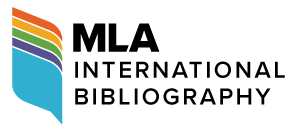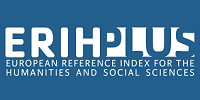Call for papers HYBRIDA nº 10: «(POST)COLONIAL DIVERGENCES»
The tenth issue of the journal HYBRIDA will revolve around the overarching concept of ‘(post)colonial divergences’, with an emphasis on the intersectional perspective (gender/race/class). Marginalisation within modern normative social structures revolves around the construction of otherness as a state of lack. This notion plays a crucial role in the conceptualisation of the categories of gender and race developed over the last few centuries, contributing to the pathologisation of female and racialised bodies (Dorlin, 2006). These bodies, seen as defective, stand in opposition to the modern Western episteme, which sees the white male body as the only complete and healthy subject.
This binary power dynamic is also reflected in the configuration of sexuality, shaped by the economy of bodies governing gender and race relations. By erecting heterosexual desire as the absolute norm, this structure has relegated bodies expressing non-normative desires to the condition of defective bodies. The homosexual, categorised as the bearer of disturbed behaviour (Foucault, 1976), embodies the culmination of a deviation inherent in girls and boys considered to be ‘defective’.
Colonial discourse is also based on the notion of lack, depicting colonised communities as devoid of history and culture, voids to be filled with civilisation. Even when their histories are recognised, it is often through the prism of lack, defined by what they lack in relation to the history of the coloniser.
Lack, in short, is constitutive of all forms of domination, an inevitable condition of minority status. Being in a minority situation means lacking relevance and recognition, while at the same time being subject to authority, the sole holder of fullness. Faced with this ontological incompleteness, individuals in a minority situation often aspire to assimilation into the hegemonic social structure. However, this assimilation is nothing more than an illusion, leading the assimilated to a position of substitute subjects in the eyes of the hegemonic structures. It is this realisation that has given rise to protest reactions, developed in particular by postcolonial and decolonial studies, as well as feminist and queer studies. Increasingly, these intersectional perspectives are converging in a common position of revealing and denouncing the mechanisms of white patriarchal heterosexual power, applying them to the socio-cultural realities of certain regions of the globe, notably South America, Africa and the Middle East.
This call for papers aims to explore in particular the political and socio-cultural issues that often silence the experiences of non-Western subalterns, women and queers. It also aims to observe, analyse and, consequently, counteract the way in which the colonial fact infiltrates knowledge and activism in these regions. Indeed, in a world still marked by the legacies of colonialism, cultural studies, or scientific studies in the broadest sense, are not immune to these structuring dynamics. Our intersectional perspective thus necessarily acquires a political dimension: the simultaneous examination of the categories of ‘gender’ and ‘coloniality’ emphasises that contemporary sexualities are inextricably linked to the discipline of the state. The emergence of the nation-state, a European invention, takes on specific contours when it imposes itself as a form of social organisation in formerly colonised societies.
We therefore encourage interdisciplinary contributions that explore the limits of the political organisation of the nation-state, particularly in its close relationship with the politics of bodies and desires, with an emphasis on the role of the imaginary through various literary and artistic productions.
In a globalised world, post/decolonial, feminist and queer studies, more than ever, need to challenge the Eurocentric, Westernocentric and Northern-centric bias of their theoretical and critical paradigms. We therefore propose, by way of example, to analyse and make visible the dissident and divergent literary and artistic productions of the South, which invest language and knowledge, history and autobiography, representation and self-representation, reappropriating their bodies, enunciating them, through different artistic manifestations, and opening up, through these aesthetic and political stances, a vast site of deconstruction and re-creation. Reflecting on these paradigmatic divides between North and South will be particularly useful for rethinking bodies and sexualities philosophically and politically, and also for seeing how writers and artists are resisting the appropriation of dissident people from the South by (homo)nationalist imperialism. In this way, by bringing together post-decolonial thought with feminist and queer thought, we aim to enrich debates on the politics of sexuality in the South, as well as on divergent aesthetic and cultural manifestations in these regions of the globe. Without forgetting that the editorial line of the journal revolves around the concepts of cultural hybridisation and migrant identity, we aspire, through this Dossier d'HYBRIDA, to highlight all the political and artistic struggles that advocate a relationship of solidarity between the Suds, thereby neutralising the perverse consequence of the presumption of lack perpetuated by the heteropaedic Western cultural hegemony.
The MOSAÏQUE section includes articles that do not correspond to the central theme of the Dossier but which respect the perspectives proposed by the magazine. A creative section called TRACES features previously unpublished literary and artistic works by authors from all walks of life (texts, images, personal accounts, interviews, etc.). The ÉVENTAIL section is devoted to critical, literary and artistic reviews of recent works and publications.
HYBRIDA is particularly interested in Francophone cultural contexts, or in comparing them in a globalised context. HYBRIDA is a bi-annual open access journal with an international scientific board and peer review committee publishing original research in the fields of cultural studies that take into consideration postcolonial, gender and queer perspectives. We welcome articles from all areas of the humanities and social sciences. The preferred language is French, but papers may also be written in English or Spanish. Papers will be submitted for double-blind review.















